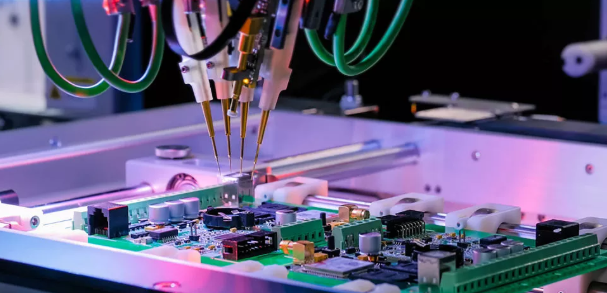In a significant effort to enhance India’s electronics ecosystem, the Union Government has cleared investment of ₹5,532 crore for seven projects under the Electronics Components Manufacturing Scheme (ECMS). The initiative is to further India’s transition from assembling imported components to manufacturing core electronic materials and parts within the country.
Union Electronics and IT Minister Ashwini Vaishnaw announced that the projects are a “transformational step” towards developing a self-reliant and innovation-led electronics manufacturing ecosystem.
The projects cleared recently distributed across Tamil Nadu (5 units), Andhra Pradesh (1 unit), and Madhya Pradesh (1 unit) will create over ₹36,000 crore worth of component production and generate over 5,000 direct employment opportunities.
The ECMS will facilitate local manufacturing of key components like Multi-Layer and HDI PCBs, Camera Modules, Copper Clad Laminates (CCL), and Polypropylene Films. These components form the backbone of thousands of diverse products, ranging from smartphones and electric vehicles to medical devices and defence technology.
The cleared projects will satisfy some 20% of India’s domestic demand for PCBs and 15% of its camera module needs, while the production of CCLs will be entirely localized, with 60% of the output being export-focused.
The ECMS initiative has drawn a strong response from industry players, with 249 applications already submitted, signaling robust interest in the program. Combined, they amount to potential investments of ₹1.15 lakh crore, production value of ₹10.34 lakh crore, and 1.42 lakh job opportunities the largest-ever pledge in India’s electronics industry.
The program is likely to sharply reduce import dependence, improve supply chain resilience, and attract high-skill employment in manufacturing and R&D. The components produced under ECMS will help feed key industries like defence, telecommunication, renewable energy, and electric vehicles.
Vaishnaw highlighted that ECMS synergizes with flagships such as the Production Linked Incentive (PLI) scheme and the India Semiconductor Mission (ISM).
“India is transforming from being an assembling country to a product country designing, producing, and exporting sophisticated electronic gear. ECMS fills the critical gap between devices and components and manufacturing and innovation,” he added.
With this approval, India makes another decisive step towards becoming a world electronics manufacturing hub, driven by indigenous innovation, large-scale investment, and increasing self-reliance.







